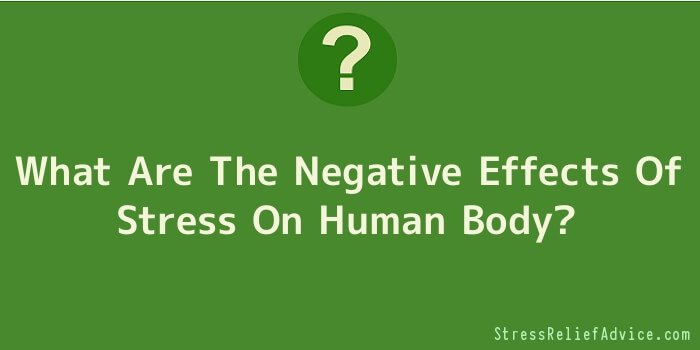
Stress arises when the body reacts to certain changes that need immediate response and adjustment. The body’s physical, emotional and mental aspects react to these changes. Stress is known to normally occur to everybody and has become a natural part of life.
When stress continuously occurs without relief, a person can experience negative stress response, or otherwise known as distress. Distress can cause several physical symptoms including sleep disorders, chest pains, hypertension, stomach upset, and headaches. Stress can also aggravate the symptoms of ailments.
The following are some of the effects of stress on the human body:
- The digestion process slows down, as well as the elimination of wastes out of the body.
- When there is stress, the functioning of the immune system decelerates.
- There is a heightened alertness as more neurotransmitters to the brain are released during stress.
- Muscles become tensed and achy.
- The blood pressure and heart rate increases.
How Does Stress Affect Health?
Stress affects an individual’s health in several ways. This is a natural process which does not cause alarm when controlled and managed properly. Here are some ways by which stress affects one’s health.
Stress can be a huge contributor to depression. An overly stressed individual who finds it difficult to cope with his problems and worries can end up feeling hopeless. This condition results to sadness and despair, leading to depression.
Too much stress can trigger the development of ulcer in the stomach. The stomach naturally produces acids. When a person is under stress, there is an excessive secretion of this causing damage to the stomach walls.
The immune system becomes worn out when the body is under stress. Thus, fighting diseases would be difficult as the body’s defence is depleted.
Panic and anxiety problems become prominent when a person is stressed. To help manage this condition, stress has to be controlled.
A person under too much pressure can easily get angry and irritated.
Weight gain that may lead to obesity can be due to stress. More often than not, people who feel stressed snack on sugary foods. Sometimes, for them to cope with their stress, they munch on chocolates, cakes, or anything that provides a fleeting feeling of satisfaction. Comfort eating often leads to weight gain.
Chronic stress has a detrimental effect to the heart and blood circulation. Exposure to constant stress causes high blood pressure and blood clotting problems that may even lead to stroke or cardiac arrest.
